 |
 |
 |
 |
 |
 |
 |
 |
 |
 |
|
KICP News
|
KICP News, 2016
Chen He Wins Best Poster Prize at the "Essential Cosmology For Next Generations" conference February 3, 2016 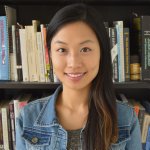 Chen He's work focuses on understanding fundamental physics in the early universe through cosmological observations of the cosmic microwave background. Related Links: KICP Members: Daniel Grin; Wayne Hu KICP Students: Chen He Heinrich The KICP will welcome 3 new Fellows in the Autumn of 2016 February 15, 2016 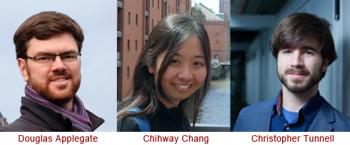 Chihway Chang received her PhD at Stanford University where she studied the potential systematic effects in weak lensing measurements for the Large Synoptics Survey Telescope (LSST). She then ventured to Switzerland as a postdoc at ETH Zurich and worked on weak lensing data from the Dark Energy Survey (DES). At KICP, Chihway is interested in extending her current work and exploring the power of combining CMB data from SPT with DES. Christopher Tunnell is involved in the XENON1T as the analysis coordinator and will be collaborating with Luca Grandi at KICP. Before coming to KICP, he was a postdoctoral researcher at the Dutch particle-physics laboratory Nikhef where he researched light Dark Matter. He completed his doctorate at the University of Oxford on sterile-neutrino physics. Related Links: KICP Members: Douglas E. Applegate; Chihway Chang; Luca Grandi; Christopher Tunnell Scientific projects: Dark Energy Survey (DES); South Pole Telescope (SPT); XENON1T KICP celebrates an historic day in science February 15, 2016 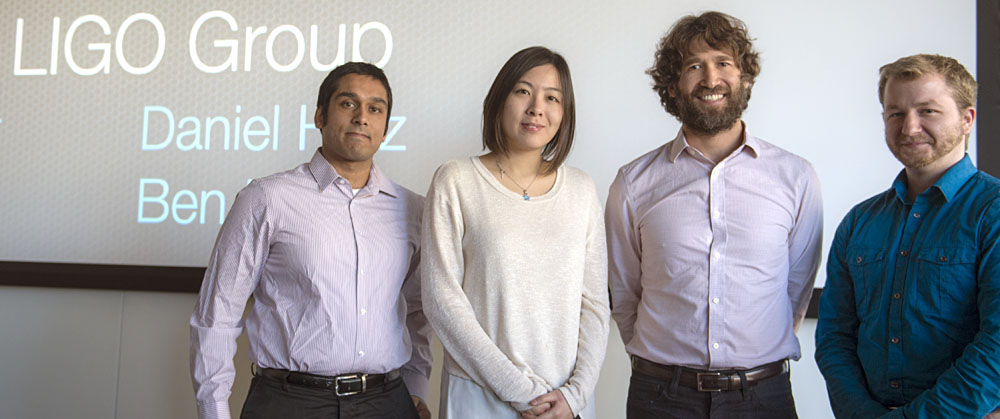 KICP and LIGO collaboration members Daniel Holz, Ben Farr, Hsin-Yu Chen, and Zoheyr Doctor shared the excitement of the discovery of Gravitational Waves with the rest of the KICP and Physical Sciences Division at a live stream event of the discovery press conference on February 11. 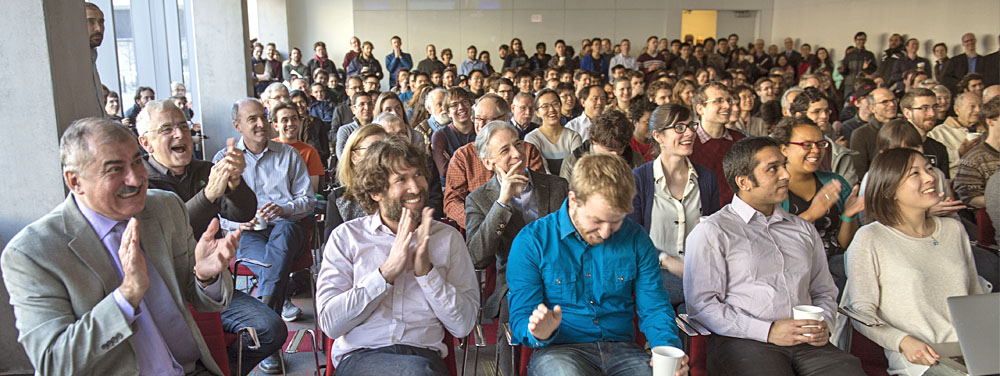 The crowd overflowed the ERC auditorium as students, faculty, and staff all clamored to hear the historic announcement. Upon hearing the phrase "Ladies and Gentlemen, we have detected gravitational waves, we did it!" the room broke into spontaneous applause. Following the press conference, Holz answered questions from the audience. Later that day, he expanded upon the announcement at an overflow Physics Colloquium. LIGO press conference Related Links: KICP Members: Ben Farr; Daniel E. Holz KICP Students: Hsin-Yu Chen; Zoheyr Doctor Life Long Learning program March 9, 2016 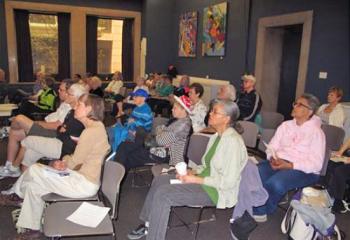 Related Links: KICP Members: Michael D. Gladders; Daniel Grin; Jason Henning; Daniel E. Holz; Richard G. Kron; Andrew J. Long; Stephan S. Meyer; Daniel M. Scolnic KICP Students: Sean Johnson; Brittany Kamai Congratulations to Joshua Frieman! April 20, 2016 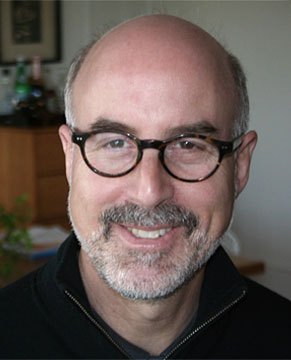 For more about the American Academy and the class of 2016 honorees see: Newly Elected Fellows Michael S. Turner, Director of the PFC and KICP Read more >> Related Links: KICP Members: Joshua A. Frieman; Michael S. Turner Wayne Hu elected to the National Academy of Sciences May 3, 2016 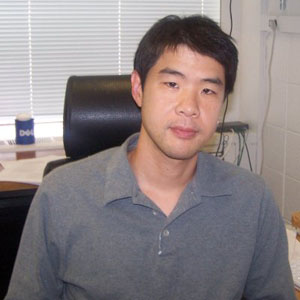 Wayne Hu is a senior member of the KICP and the Horace B. Horton Professor in the Department of Astronomy & Astrophysics, Enrico Fermi Institute, and the College. His research focuses on the theory and phenomenology of structure formation in the Universe as revealed in Cosmic Microwave Background anisotropies, gravitational lensing, galaxy clustering and galaxy clusters. Related Links: KICP Members: Wayne Hu Dan Scolnic Competes in Famelab national finals May 18, 2016 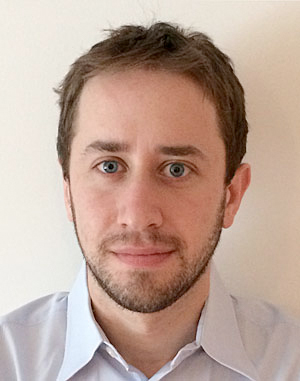 FameLab USA is a NASA-sponsored, science-based take on American Idol, aimed at fostering an open community for science communication and development. Read more >> Related Links: KICP Members: Daniel M. Scolnic Keith Bechtol wins Saturday's Soldier Field 10 Mile Race May 31, 2016 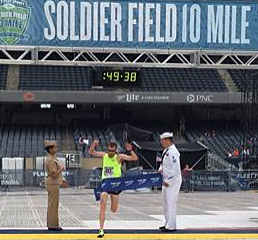 Related Links: KICP Members: Keith Bechtol Congratulations to Prof. Angela V. Olinto! May 31, 2016 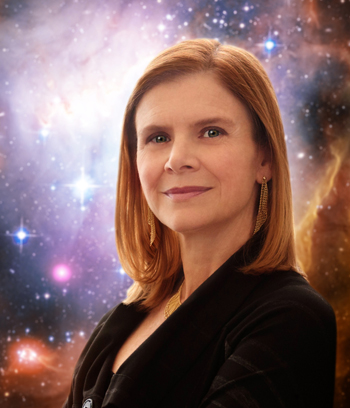 Related Links: KICP Members: Angela V. Olinto The 2016 Kavli Prizes June 2, 2016  This year's laureates were selected for the direct detection of gravitational waves, the invention and realization of atomic force microscopy, and for the discovery of mechanisms that allow experience and neural activity to remodel brain function. The Kavli Prize in Astrophysics goes to Ronald W.P. Drever, Kip S. Thorne and Rainer Weiss. Gerd Binnig, Christoph Gerber and Calvin Quate share the Kavli Prize in Nanoscience. The Kavli Prize in Neuroscience goes to Eve Marder, Michael Merzenich and Carla Shatz. The Kavli Prize is awarded by The Norwegian Academy of Science and Letters and consists of a cash award of 1 million US dollars in each field. The laureates receive in addition a gold medal and a scroll. Today’s announcement was made by Ole M. Sejersted, President of the Norwegian Academy of Science and Letters, and transmitted live to New York as part of a World Science Festival event where France Cordova, Director of the National Science Foundation, delivered the keynote address. The Kavli Prize in Astrophysics is shared between Ronald W.P. Drever and Kip S. Thorne, both from the California Institute of Technology, USA, and Rainer Weiss of the Massachusetts Institute of Technology, USA. They receive the prize "for the direct detection of gravitational waves". The signal picked up by the Laser Interferometer Gravitational-wave Observatory (LIGO) in the US on September 14, 2015, lasted just a fifth of a second but brought to an end a decades-long hunt to directly detect the ripples in space-time known as gravitational waves. It also opened up a completely new way of doing astronomy, which uses gravitational rather than electromagnetic radiation to study some of the most extreme and violent phenomena in the universe. This detection has, in a single stroke and for the first time, validated Einstein’s General Theory of Relativity for very strong fields, established the nature of gravitational waves, demonstrated the existence of black holes with masses 30 times that of our sun, and opened a new window on the universe. The detection of gravitational waves is an achievement for which hundreds of scientists, engineers and technicians around the world share credit. Drever, Thorne and Weiss stand out: their ingenuity, inspiration, intellectual leadership and tenacity were the driving force behind this epic discovery. The Kavli Prize in Nanoscience is shared between Gerd Binnig, Former Member of IBM Zurich Research Laboratory, Switzerland, Christoph Gerber, University of Basel, Switzerland, and Calvin Quate, Stanford University, USA. They receive the prize "for the invention and realization of atomic force microscopy, a breakthrough in measurement technology and nanosculpting that continues to have a transformative impact on nanoscience and technology". The realization of the atomic force microscope was reported by Binnig, Gerber and Quate in 1986, with a demonstration that the instrument could be used to obtain profiles of a solid-state surface with close to atomic resolution. In the last 30 years the instrument has evolved dramatically and has provided fundamental insight into the chemistry and physics of a large variety of surfaces. It is still widely used today as a versatile tool for imaging and manipulation in a broad range of scientific disciplines. The Kavli Prize in Neuroscience is shared between Eve Marder, Brandeis University, USA, Michael Merzenich, University of California San Francisco, USA, and Carla Shatz, Stanford University, USA. They receive the prize "for the discovery of mechanisms that allow experience and neural activity to remodel brain function". Until the 1970s, neuroscientists largely believed that by the time we reach adulthood the architecture of the brain is hard-wired and relatively inflexible. The ability of nerves to grow and form abundant new connections was thought mainly to occur during infancy and childhood. This view supported the notion that it is easier for children to learn new skills such as a language or musical instrument than it is for adults. Over the past 40 years, however, the three Kavli neuroscience prize-winners have challenged these assumptions and provided a convincing view of a far more flexible adult brain than previously thought possible - one that is 'plastic', or capable of remodelling. Working in different model systems, each researcher has focused on how experience can alter both the architecture and functioning of nerve circuits throughout life, given the right stimulus and context. They have provided a physical and biochemical understanding of the idea of 'use it, or lose it'. This new picture of a more adaptable brain offers hope for developing new ways to treat neurological conditions that were once considered untreatable. About the Kavli Prizes The Kavli Prize is a partnership between the Norwegian Academy of Science and Letters, The Kavli Foundation (USA) and the Norwegian Ministry of Education and Research. The Kavli Prizes were initiated by and named after Fred Kavli (1927-2013), founder of The Kavli Foundation, which is dedicated to advancing science for the benefit of humanity, promoting public understanding of scientific research, and supporting scientists and their work. Kavli Prize recipients are chosen biennially by three prize committees comprised of distinguished international scientists recommended by the Chinese Academy of Sciences, the French Academy of Sciences, the Max Planck Society, the U.S. National Academy of Sciences and the Royal Society. After the prize committees have selected the award recipients, their recommendations are confirmed by the Norwegian Academy of Science and Letters. The 2016 Kavli Prizes will be awarded in Oslo, Norway, on 6 September. His Royal Highness Crown Prince Haakon will present the prizes to the laureates. This year's ceremony will be hosted by Alan Alda and Lena Kristin Ellingsen. Prime Minister Erna Solberg will host a banquet at Oslo City Hall in honour of the laureates. The ceremony is part of Kavli Prize Week - a week of special programmes to celebrate extraordinary achievements in science. Read more >> Congratulations to Dr. Brittany Kamai! June 22, 2016 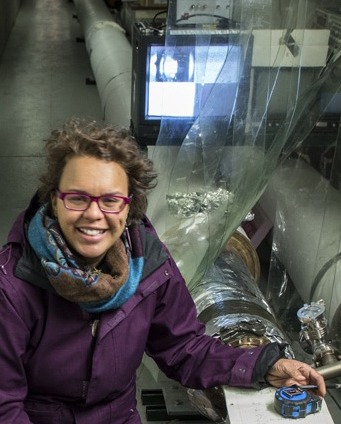 "Brittany's thesis uses the Holometer data for a unique measurement of gravitational waves in the Megahertz frequency band. Her analysis sets limits on possible exotic sources of gravitational waves, such as black holes in binaries of very small mass -- radiating at frequencies ten thousand time higher than those recently measured by LIGO." - Craig J. Hogan Brittany has received a position of LIGO Instrumentation Postdoctoral Fellow at the California Institute of Technology. Related Links: KICP Members: Craig J. Hogan; Stephan S. Meyer KICP Students: Brittany Kamai Congratulations to Dr. Jonathan Richardson! June 23, 2016 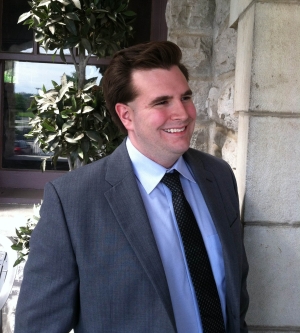 "Jon's thesis represents an important milestone. He's done much of the critical work to make the Holometer experiment a reality. It's the most sensitive instrument ever built to study tiny random jitters of space. In his thesis, he shows that the scale of random shear jitter is more than an order of magnitude less than the Planck length, which was the theoretical expectation. The experiment essentially rules out this effect. He's working with our team now to reconfigure the machine to study the other possibility, a jitter of rotational motion, at similar sensitivity. There is some hope that this effect in the laboratory may connect with the cosmic dark energy problem." - Craig J. Hogan Jonathan has received a Research Fellow position at the University of Michigan. Related Links: KICP Members: Craig J. Hogan; Stephan S. Meyer KICP Students: Jonathan Richardson Congratulations to Dr. Asher Berlin! July 8, 2016 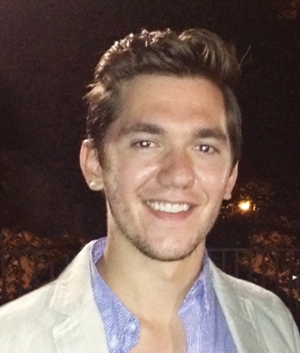 "Asher's work has covered a broad range of topics related to dark matter and efforts to reveal its particle nature. He has worked on theory calculations relevant to underground and space-based dark matter searches and to searches for dark matter at the Large Hadron Collider. More recently, he has worked on non-standard ways in which dark matter may be have created in the early universe." - Dan Hooper, PhD advisor Asher has received a Post Doctoral Fellow position at SLAC. Related Links: KICP Members: Daniel Hooper; Lian-Tao Wang KICP Students: Asher Berlin Congratulations to Dr. Sean Johnson! July 18, 2016 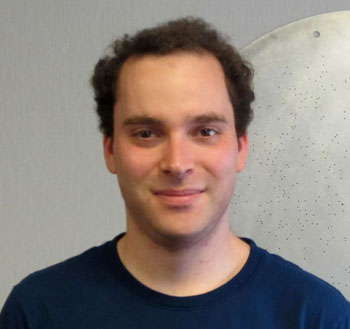 "Sean's thesis work casts new light on the intricate physical processes that drive the baryon cycles between star-forming regions and the intergalactic space. He led an ambitious survey of the galactic environments around chemically-enriched gas revealed in strong absorption against a background source. Sean's thesis sample represents the first of its kind in terms of both the scale and depth of galaxy survey data in quasar fields. It provides a pathfinder for future large-scale studies that will combine wide-field galaxy surveys with absorption spectroscopy to advance our understanding of chemical enrichment in low-density regions away from galaxies." - Hsiao-Wen Chen, PhD advisor Sean will be starting as a Carnegie-Princeton/Hubble fellow at Princeton in the fall. Related Links: KICP Members: Hsiao-Wen Chen KICP Students: Sean Johnson 2016 Yerkes Summer Institute: Spy vs. Spy August 16, 2016 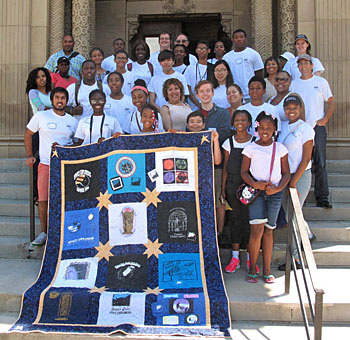 The 2016 Yerkes Summer Institute (YSI) was filled with secrecy, deception, and espionage. At YSI, high school students in the Space Explorers program played the role of 20th-Century spies to handle secret information: revealing, concealing and distorting information. Through three day-long lab activities, the students explored connections between spying and science. In the "Secret Photos" lab, they studied angular size, resolution, and the film-development process in order to effectively gather information on "enemy operatives" using 35 mm cameras. In the "Radio Beams" lab, students designed, built, and tested a system to transmit audio via an amplitude-modulated (AM) laser, which allowed them to secretly communicate across long distances. Lastly, techniques to securely communicate were examined in the "Codes and Ciphers" lab, which also served as an introduction to modern cryptography. After cycling through these three day labs, the students broke into three new groups and took one of the labs a step further: one group doctored photographs to spread false information, another built AM radio transmitters and receivers, and the last created treasure hunts using codes and ciphers for the clues. Nighttime activities included: observations with the Yerkes telescopes, astrophotography, explorations of the constellations which focused on what current research can tell us about them (e.g. most know exoplanets were found by Kepler in the constellation Cygnus); and bad weather activities that included examinations of the veracity of viral internet photos, and stories of famous spies. The week's spy-themed activities not only introduced the students to the importance of privacy in the digital age, but also to the concepts and skills that are integral to any modern STEM career. Related Links: KICP Members: Camille Avestruz; Richard G. Kron; Randall H. Landsberg KICP Students: Zoheyr Doctor; Gourav Khullar; James Lasker; Philip Mansfield; Jason Poh "Bruce Winstein", biographical memoir by Mel Sochet and Michael Turner September 27, 2016 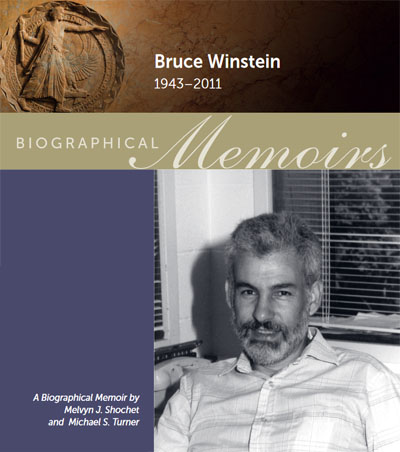 Read more >> Related Links: KICP Members: Michael S. Turner Congratulations to Matthew Richardson, KICP Fisk-Vanderbilt Bridge Program participant! October 10, 2016 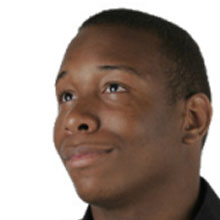 "Through a careful analysis of data collected by the MIDAS detector installed at the Pierre Auger Observatory, Matt has established the best limits on microwave emission from Extensive Air Showers induced in the atmosphere by Ultra-High Energy Cosmic Rays (UHECR). His results, an improvement by more than one order of magnitude over previously published limits, place strong constraints on the prospects of this technique for UHECR detection." - Paolo Privitera Matt has received a position of Postdoctoral Research Scientist at the Planetary Science Institute. Related Links: KICP Members: Paolo Privitera Scientific projects: Microwave Detection of Air Showers (MIDAS) Congratulations to Scott Wakely! October 13, 2016 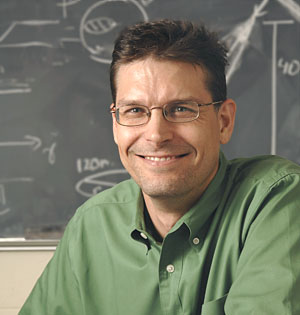 Related Links: KICP Members: Scott P. Wakely Scientific projects: Very Energetic Radiation Imaging Telescope Array System (VERITAS) Congratulations to Robert Wald! October 20, 2016 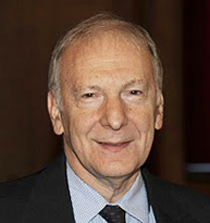 Related Links: KICP Members: Robert M. Wald SPT-3G Camera Has Shipped to the South Pole November 1, 2016 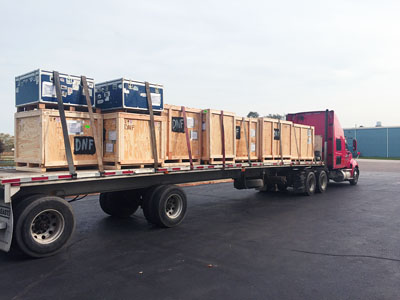 Related Links: KICP Members: Amy Bender; Bradford A. Benson; Lindsey Bleem; John E. Carlstrom; Clarence L. Chang; Thomas M. Crawford; Stephan S. Meyer; Stephen Padin; Erik Shirokoff Scientific projects: South Pole Telescope (SPT) Chicago high school students visit to experience "A day in the life of a scientist" November 15, 2016 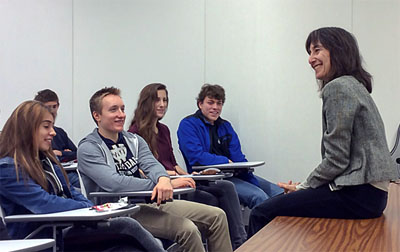 As part of her activities, Professor Freedman recently arranged for students to visit the Eckhardt Research Center for a discussion and tour of the KICP and Astronomy & Astrophysics labs and the Pritzker Nanofabrication Facility. Students visited the PNF and the KICP labs of Professor Erik Shirokoff (where Associate Fellow Peter Barry described the lab equipment and activities), and gathered in Professor Stephan Meyer's lab to see a camera that will be used in a balloon-borne experiment to detect cosmic ray showers. Professors Meyer and Freedman also spoke to students about various aspects of their research and their lives as scientists.  Professor Meyer explains Extensive Air Showers to the visiting students.  Stephan Meyer showing the visitors around his lab.  Associate Fellow Peter Barry explaining a piece of apparatus in the Shirokoff lab. Related Links: KICP Members: Peter Barry; Wendy L. Freedman; Stephan S. Meyer; Erik Shirokoff The Long Duration Balloon season has begun December 2, 2016 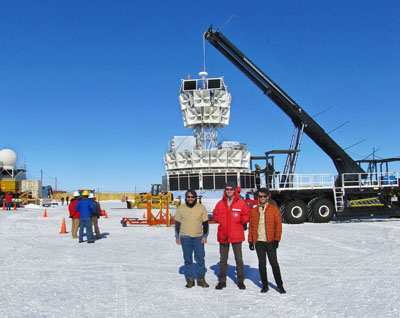 KICP members working on the project include Abby Vieregg, postdoctoral researchers Cosmin Deaconu and Eric Oberla, and graduate student Andrew Ludwig. Cosmin, Eric, and Andrew are in Antarctica for the integration, testing, launch, and flight. Related Links: KICP Members: Cosmin Deaconu; Eric Oberla; Abigail G. Vieregg KICP Students: Andrew Ludwig Scientific projects: Antarctic Impulsive Transient Antenna (ANITA) Mark SubbaRao to become IPS President-Elect December 7, 2016 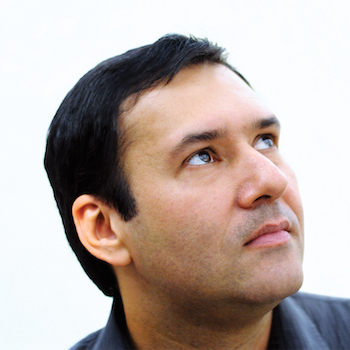 Mark SubbaRao won the recent International Planetarium Society (IPS) election and will assume the role of President-Elect of this prestigious society at the beginning of 2017. In two year's time he will become the President of the IPS for a two year term. In his candidate's statement, Mark said "I am running for IPS President to help shape the future of the planetarium, this wonderful medium which can inspire the public like nothing else. ... If elected, I will focus on building a more active organization and expanding professional development opportunities. We will support research that demonstrates how effective the planetarium is." Read the entire statement at the International Planetarium Society website. Read more >> Related Links: KICP Members: Mark Subbarao Space Explorer Naa Ashitey is the Quest Bridge Finalist for the University of Chicago December 12, 2016 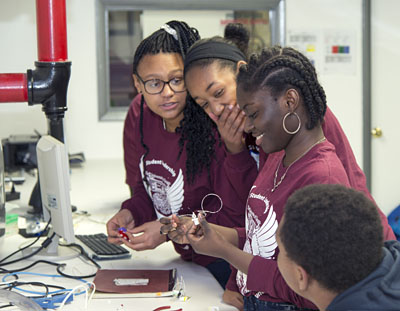 QuestBridge is a nonprofit program designed to assist high-achieving, academically motivated students from low-income backgrounds apply to top colleges around the nation. The program features the National College Match, in which students rank and apply to up to eight of QuestBridge's partner colleges. Students who are matched receive a generous four-year, no-loan scholarship. Related Links: KICP Members: Randall H. Landsberg |





 Overview
Overview